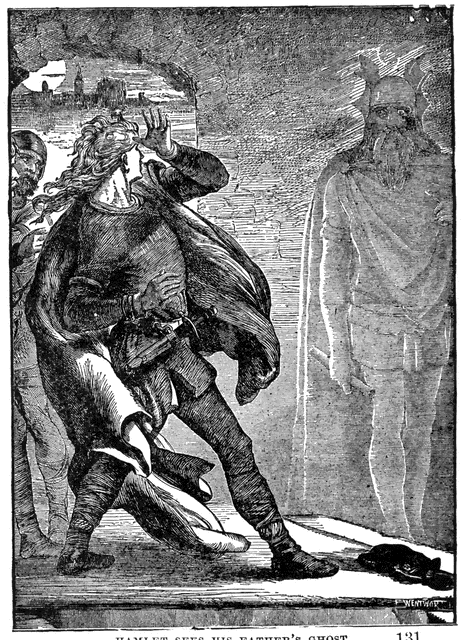The Danse Macabre

Taking a break from reading Gibson's Neuromancer tonight, and continuing to obsess over my literary fascination with paranoid, conspiracy, occult visions in literature and movies, I realized, in the blink of an eye, how much our own lives - as Gerald Alper aptly put it - is filled with the paranoia of everyday life. It is beginning to make more sense as I keep reading literature, or theorists, or the Bible, or other occult or spiritual texts, or watch movies, or television, and, moreover, life is even starting to make sense, or at least unveiling some new plain of existence. Everyone from Lovecraft to Gibson to other great writers have written about nothing other than the struggle in life for meaning, to find, as the Bible says, "our daily bread" or hear "the word of God," figurative language for a central metaphor: that is, partaking of or realizing some greater meaning or inner spiritual code (genius or daemon) to guide our minds through the haze of the paranoia of everyday life (our own fears or delusions) to create a good or moral existence for ourselves in this lonely cosmos. McLuhan said we'd realize this dream through technology, and Frye believed we would find this same thing - the Great Code - manifested in the Bible or literature: something to guide us through the arduous struggle towards a great spiritual restoration or awakening.
For whatever compulsive reason, tonight I went back to re-read my innovative, albeit slipshod paper on the ghost in Hamlet for Shakespeare class last year. I realized while reading it, even then I was struggling to define that same essential pattern, feeling or metaphor in literature that speaks to the archetypal human experience. Before I couldn't explain, secretly to myself, why it is I thought (anathema, no doubt, to most readers) you could teach Shakespeare's Hamlet and Lovecraft's The Call of Cthulhu in the same imaginative course I had foolishly envisioned teaching in my daydreams. The essential structure, or pattern is there in my paper, though the writing is a bit coarse and garbled as usual, in a metaphorical fashion, describing a very personal, universal human experience - whether felt personally or mythologically - of struggling to exorcise the (devils) anxieties of the paranoia of everyday life to create a greater, spiritual existence in the cosmos for ourselves. Life is just that: struggling with our own senses to find voice (communication) and sustenance (meaning) - to master the Great Code - from within not from some imaginary without--as we usually believe. Now if only I had realized it consciously, and let it guide me, instead of merely letting my unconscious compel me pell-mell to write something (a metaphor) even I did not myself wittingly understand at the time.
For whatever compulsive reason, tonight I went back to re-read my innovative, albeit slipshod paper on the ghost in Hamlet for Shakespeare class last year. I realized while reading it, even then I was struggling to define that same essential pattern, feeling or metaphor in literature that speaks to the archetypal human experience. Before I couldn't explain, secretly to myself, why it is I thought (anathema, no doubt, to most readers) you could teach Shakespeare's Hamlet and Lovecraft's The Call of Cthulhu in the same imaginative course I had foolishly envisioned teaching in my daydreams. The essential structure, or pattern is there in my paper, though the writing is a bit coarse and garbled as usual, in a metaphorical fashion, describing a very personal, universal human experience - whether felt personally or mythologically - of struggling to exorcise the (devils) anxieties of the paranoia of everyday life to create a greater, spiritual existence in the cosmos for ourselves. Life is just that: struggling with our own senses to find voice (communication) and sustenance (meaning) - to master the Great Code - from within not from some imaginary without--as we usually believe. Now if only I had realized it consciously, and let it guide me, instead of merely letting my unconscious compel me pell-mell to write something (a metaphor) even I did not myself wittingly understand at the time.


0 Comments:
Post a Comment
<< Home